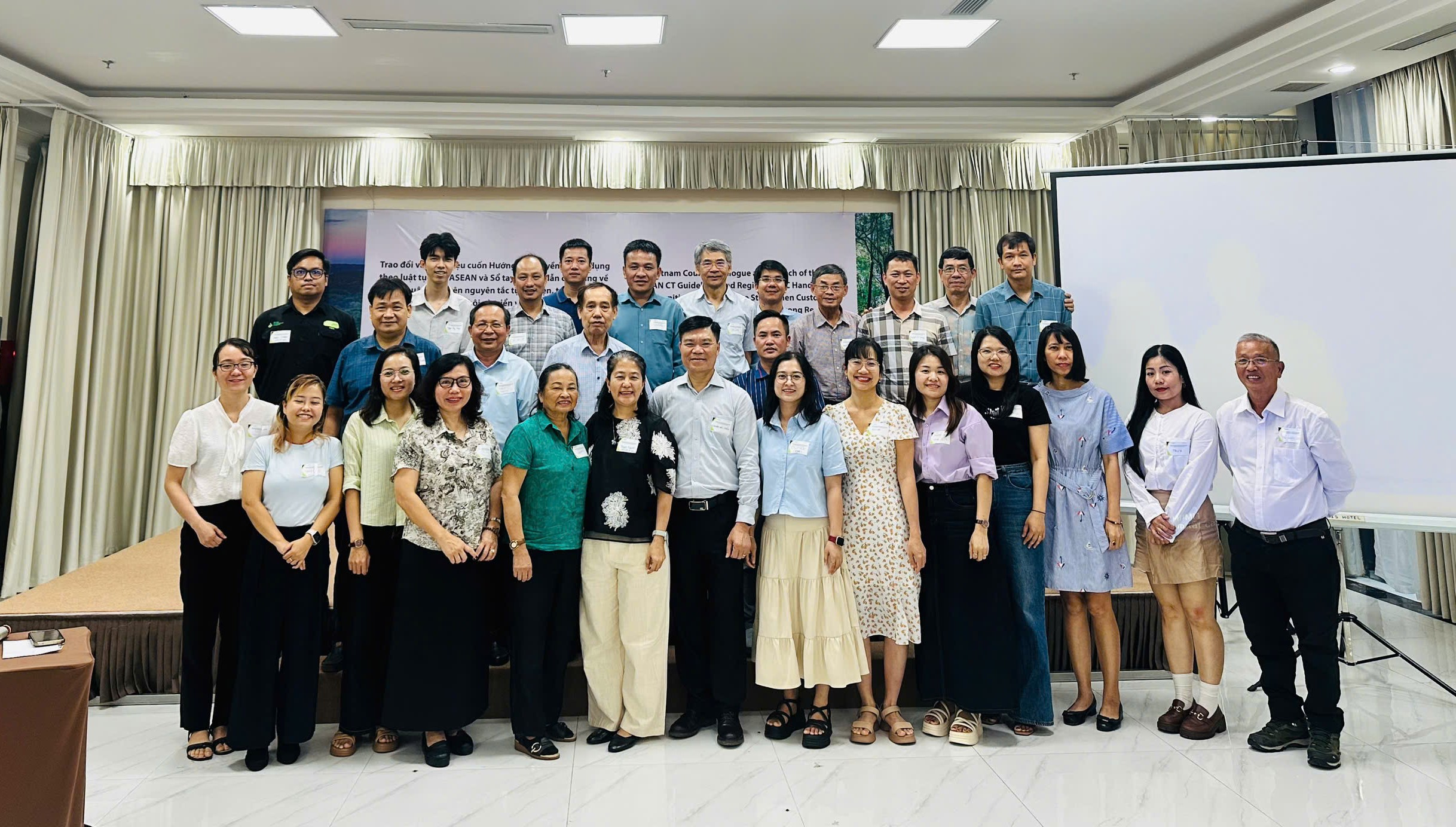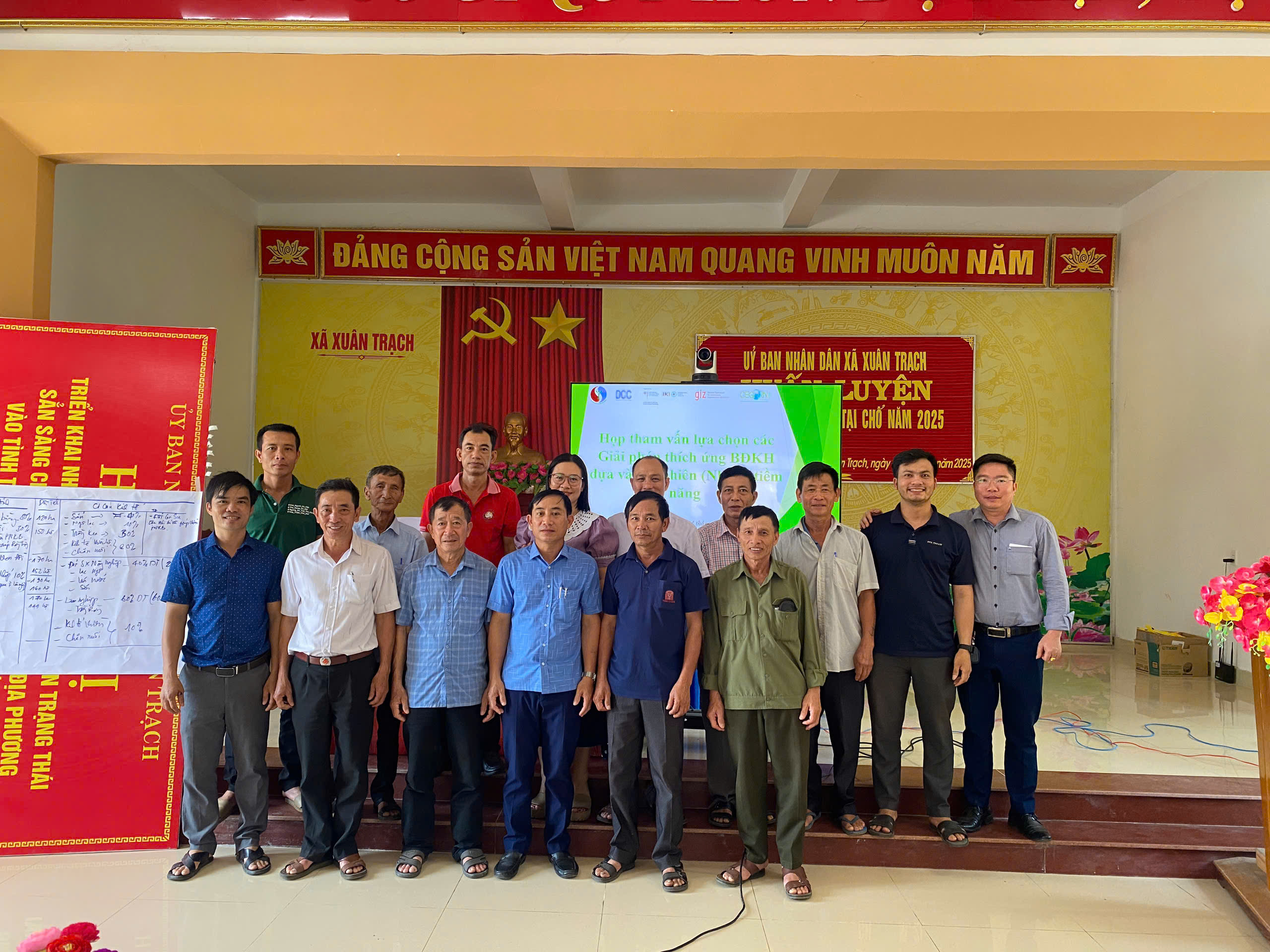Dong Hoi, Quang Binh — May 29, 2025 – The Center for Ethnic and Mountainous Area Resource Governance Research (CEGORN), in collaboration with the Department of Agriculture and Environment of Quang Binh Province, organized the Kick-off Workshop for the Project “Support to Vietnam for the Implementation of the Paris Agreement – Phase II (VN-SIPA II)” at Duy Tan Hotel.
The event also served as a consultation to identify potential sites in the province for the implementation of nature-based adaptation (NbSA) solutions. The project is funded by the Deutsche Gesellschaft für Internationale Zusammenarbeit (GIZ) – the German Development Cooperation Agency.
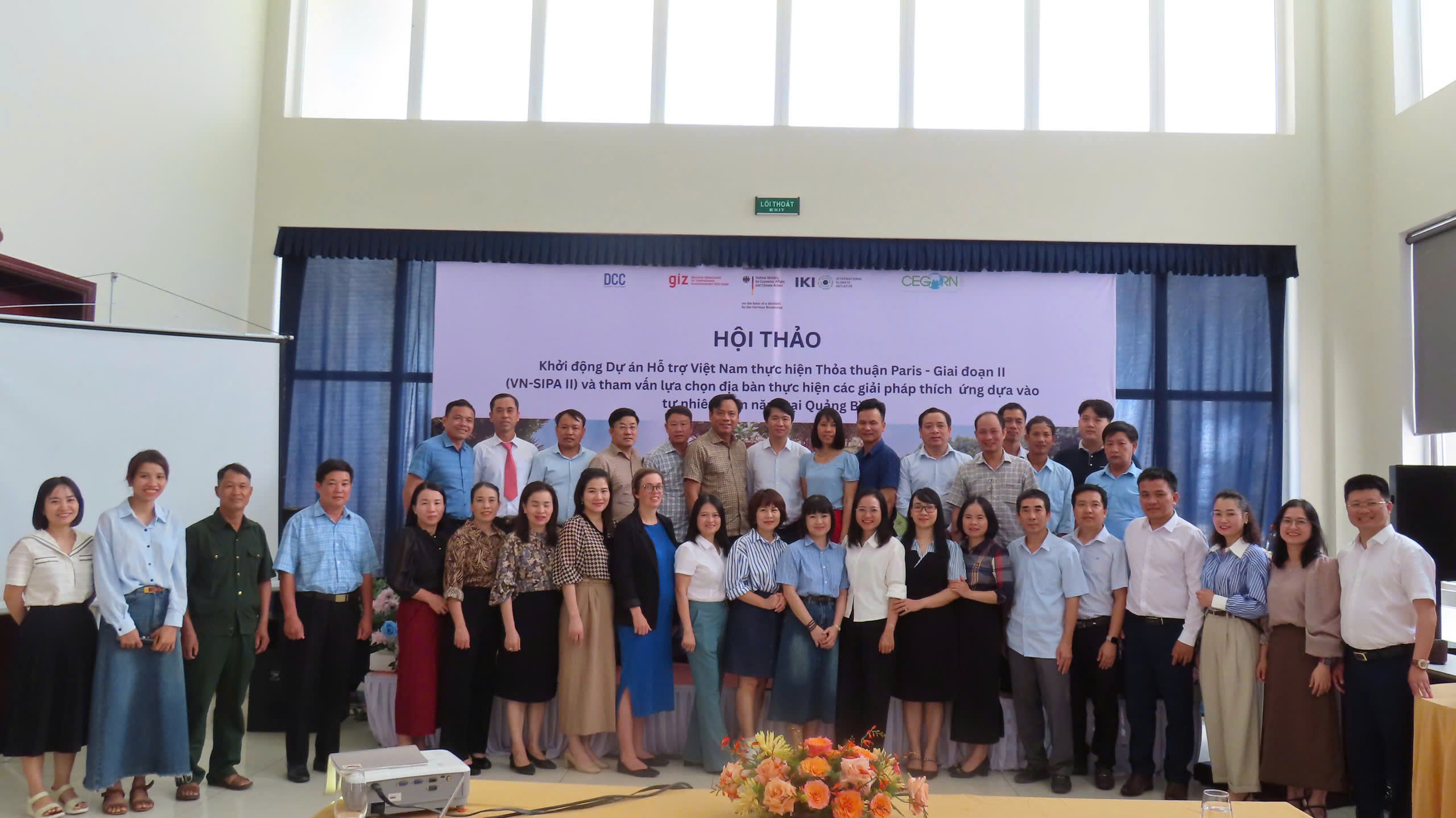
The workshop drew the participation of 52 delegates representing provincial departments, agencies, social organizations, local authorities, local communities , agricultural production and business cooperatives from Quang Binh and Ha Tinh, as well as media outlets. The event marked a significant milestone in implementing the VN-SIPA II Project in Quang Binh.
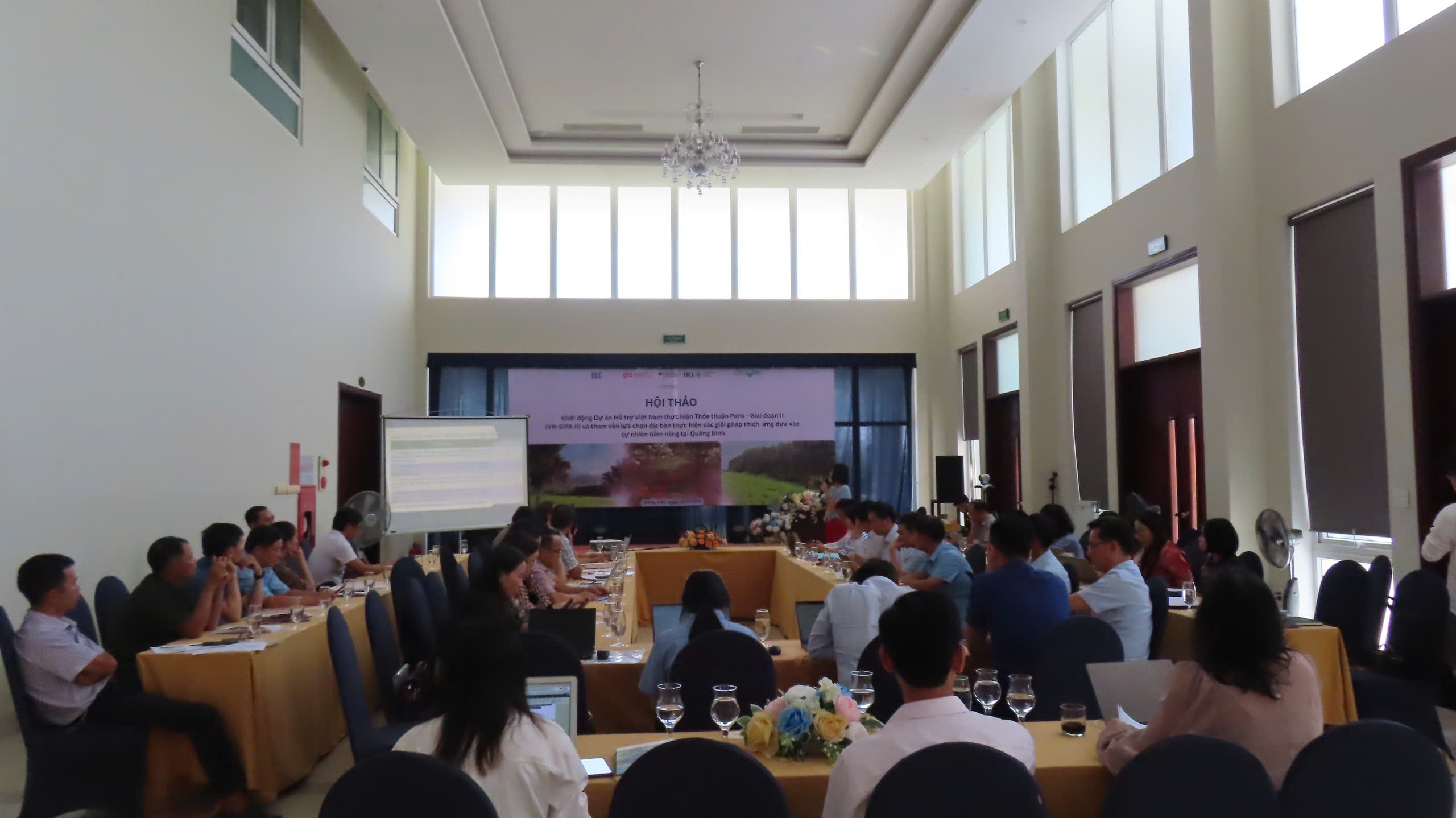
VN-SIPA II Project: International Cooperation Toward Net-Zero Emissions
The VN-SIPA II Project is funded by the Federal Ministry for Economic Affairs and Climate Action of the Federal Republic of Germany (BMWK) through the International Climate Initiative (IKI) , and implemented by the GIZ. The project aims to support Vietnam in implementing the Paris Agreement, fulfilling its Nationally Determined Contributions (NDC), and achieving net-zero emissions by 2050
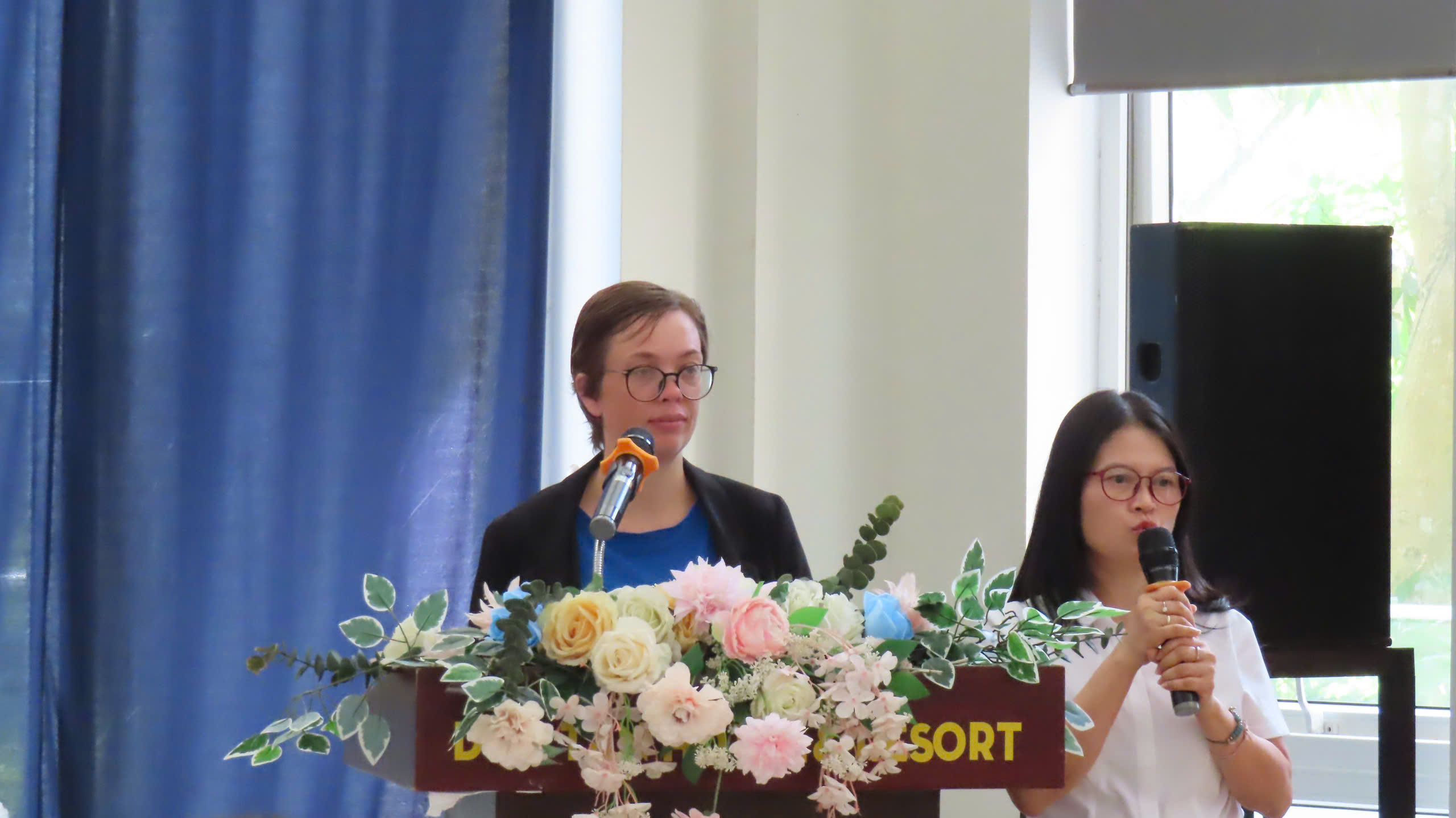
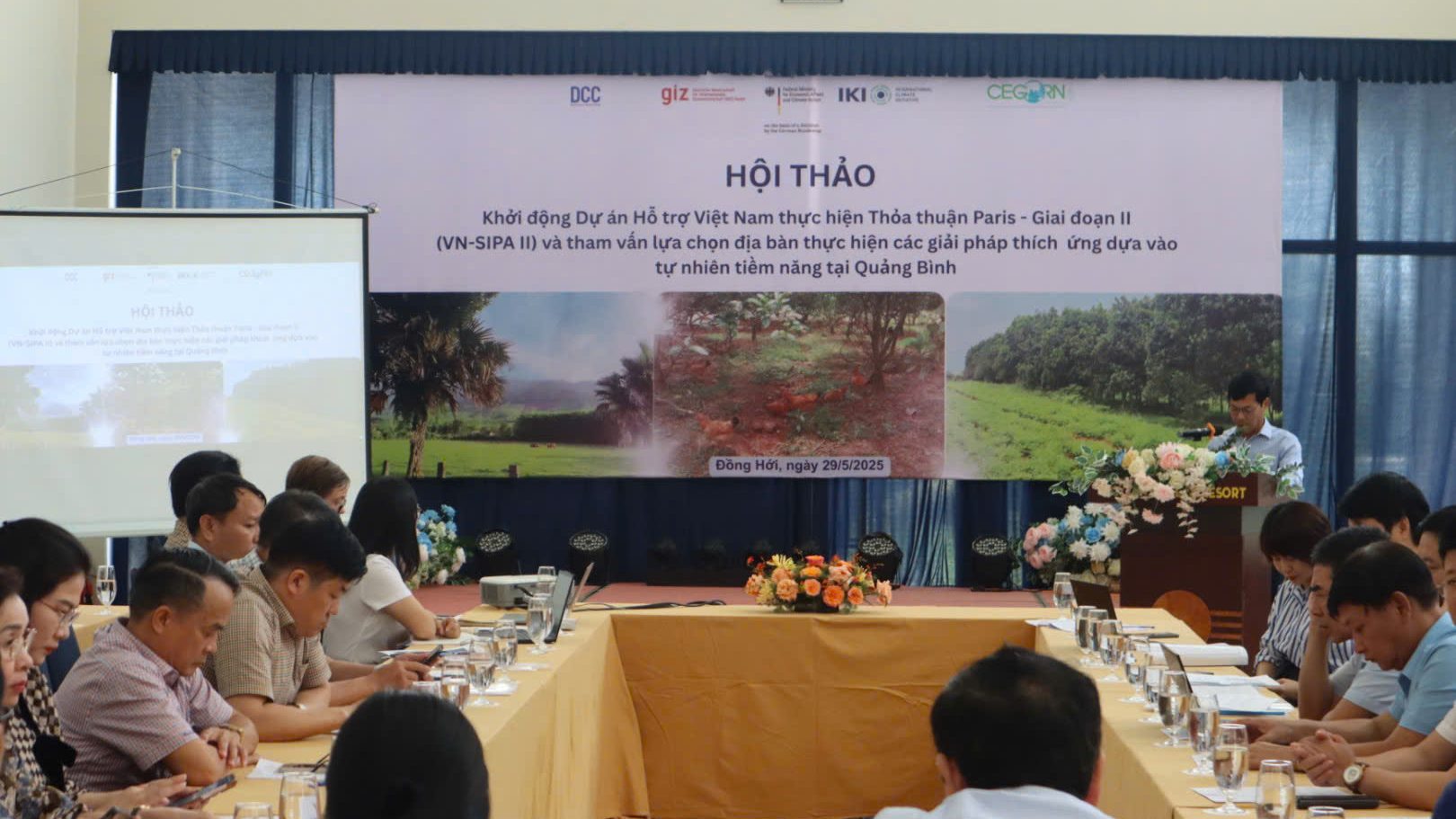
International Cooperation Toward Net-Zero Emissions
The VN-SIPA II Project is funded by the Federal Ministry for Economic Affairs and Climate Action of the Federal Republic of Germany (BMWK) through the International Climate Initiative (IKI) and implemented by GIZ. The project’s objective is to support Vietnam in implementing the Paris Agreement, fulfilling its Nationally Determined Contributions (NDC) , and achieving net-zero emissions by 2050.
In Vietnam, the project is implemented through four main components:
- Component 1: Technical support to provide scientific and practical foundations for solutions that promote greenhouse gas emission reduction, contributing to the net-zero target.
- Component 2: Capacity building for the implementation of Nationally Determined Contributions (NDC), contributing to the net-zero target.
- Component 3: Biodiversity conservation and nature-based climate change adaptation in the fields of environmental resources and agriculture.
- Component 4: Support for promoting dialogue and technical information exchange among projects under the Global Climate Initiative (IKI).
In this context, CEGORN participates in implementing activities under Component 3 in Quang Binh with the sub-project: “Improving the resilience of vulnerable smallholder agriculture to climate change-related impacts through gender-responsive Nature-based Solutions for Adaptation (NbSA) in Ha Tinh and Quang Binh provinces”
Putting Communities at the Heart of Adaptation Solutions
At the workshop, CEGORN presented the results of its site selection survey for the sub-project, covering 12 communes across three districts: Tuyen Hoa, Bo Trach, and Minh Hoa. The criteria for selecting locations and beneficiaries were based on vulnerability levels, ecological potential, community consensus, and the potential for model replication.
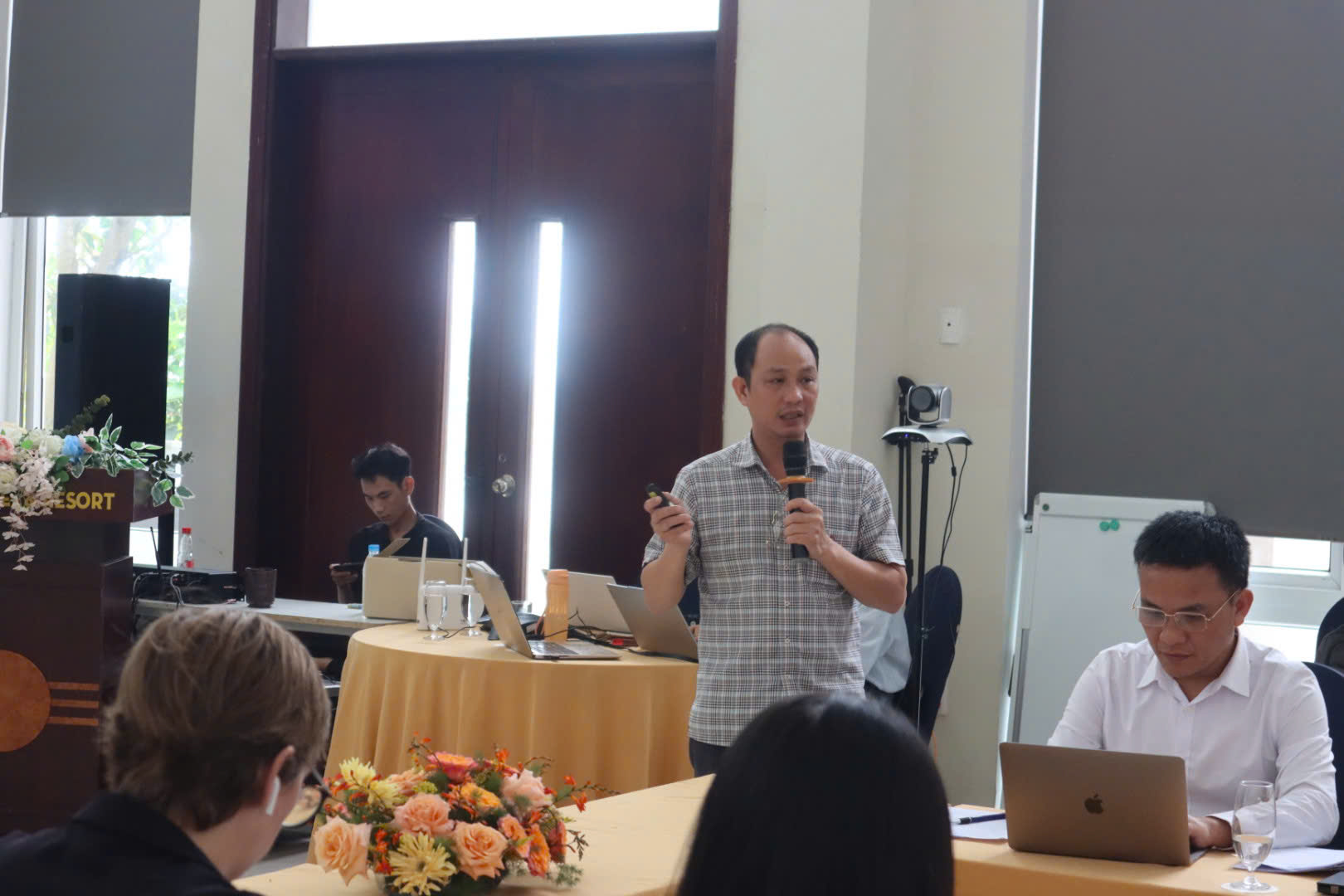
Proposed NbSA solutions include:
- Forest enrichment (planting native timber species, medicinal herbs, rattan, etc.);
- Supporting the development of closed-loop ecological gardens with fruit trees and poultry (or other livestock);
- Planting ground cover crops to prevent soil erosion;
- Cultivating medicinal plants under the canopy of fruit trees in home gardens and hillside orchards to retain moisture and prevent erosion;
- Composting organic waste and practicing circular farming;
- Beekeeping to enhance ecosystem services;
- Growing drought-tolerant food crops and applying natural biological control methods.
Sharing Practical Experiences from the Community
The workshop also served as a platform to gather valuable insights from farmers, agricultural extension officers, and representatives of the Farmers’ Unions from Quang Binh and Ha Tinh provinces. Climate-Smart Agriculture (CSA) models such as drought-tolerant grass cultivation, home garden rehabilitation, beekeeping, and fruit tree planting combined with ecosystem conservation have demonstrated clear effectiveness in improving livelihoods and enhancing climate resilience.
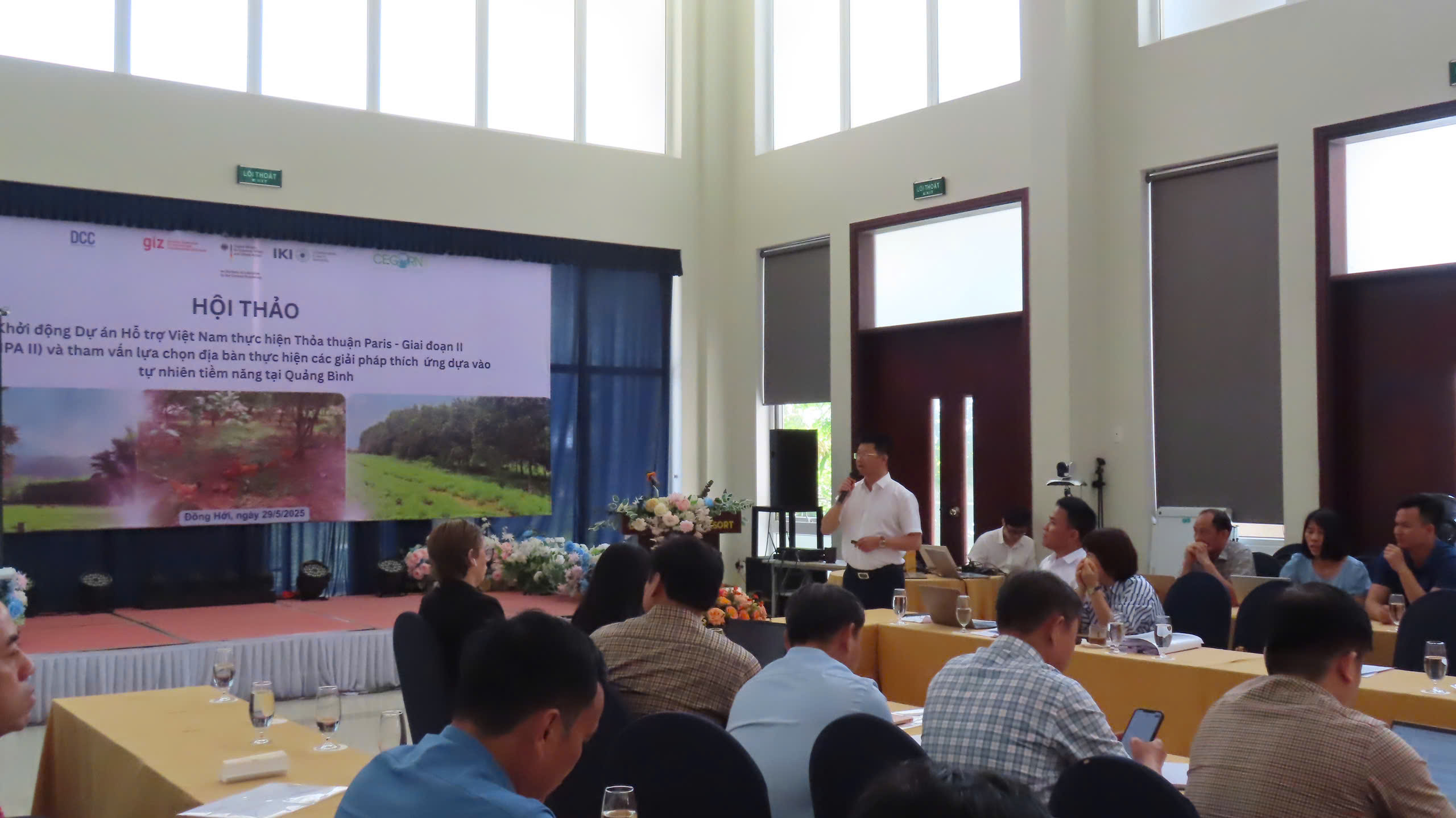
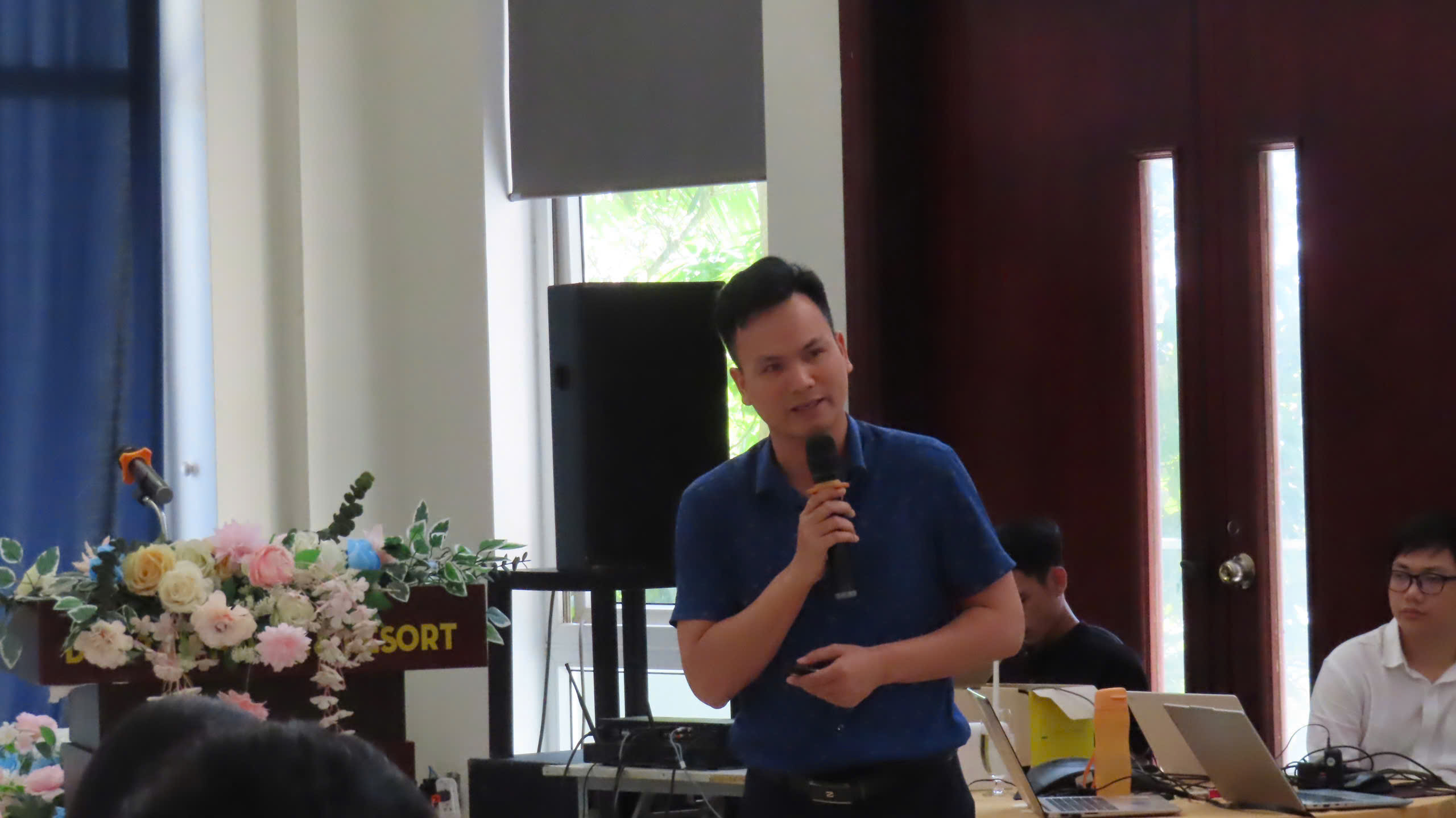
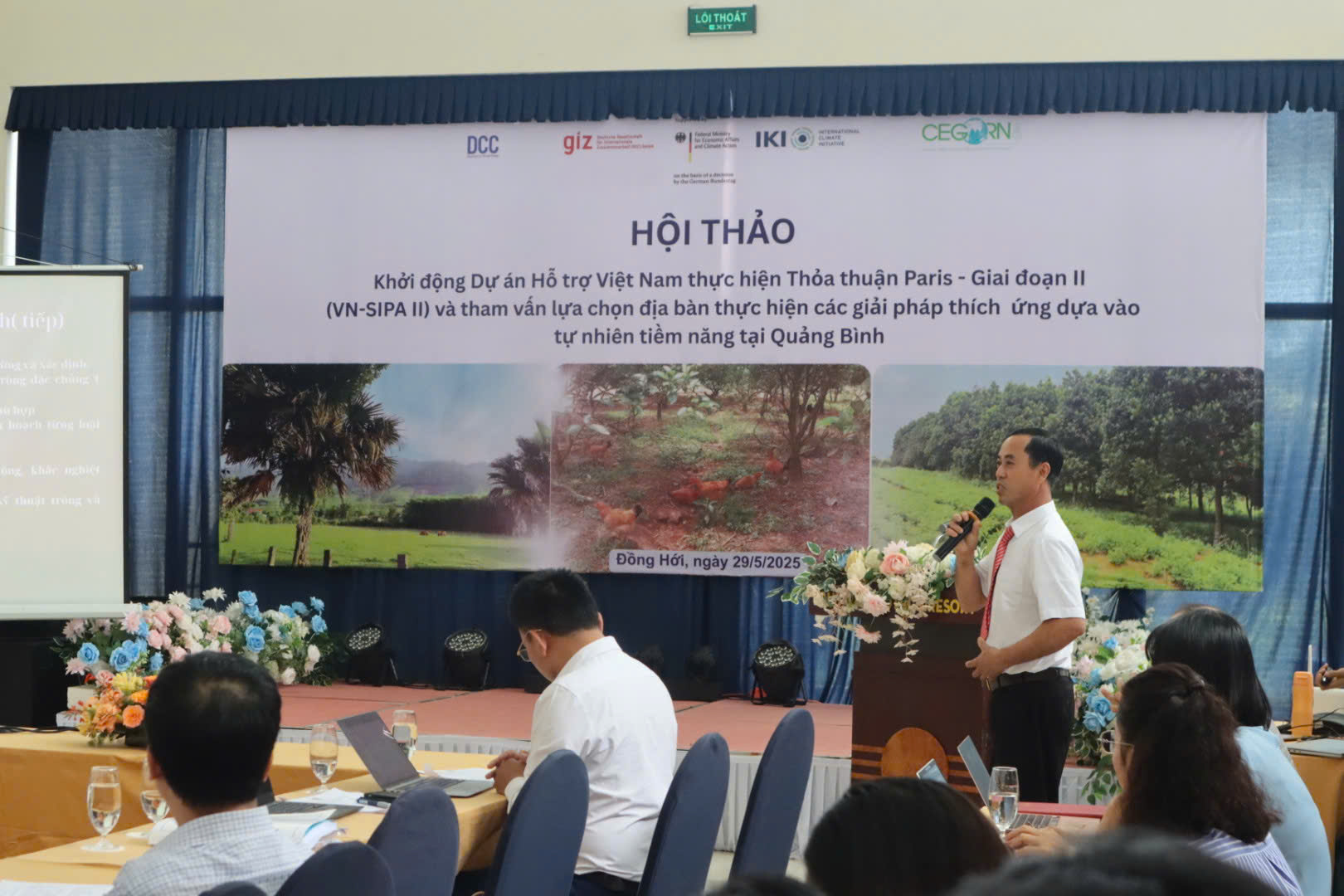
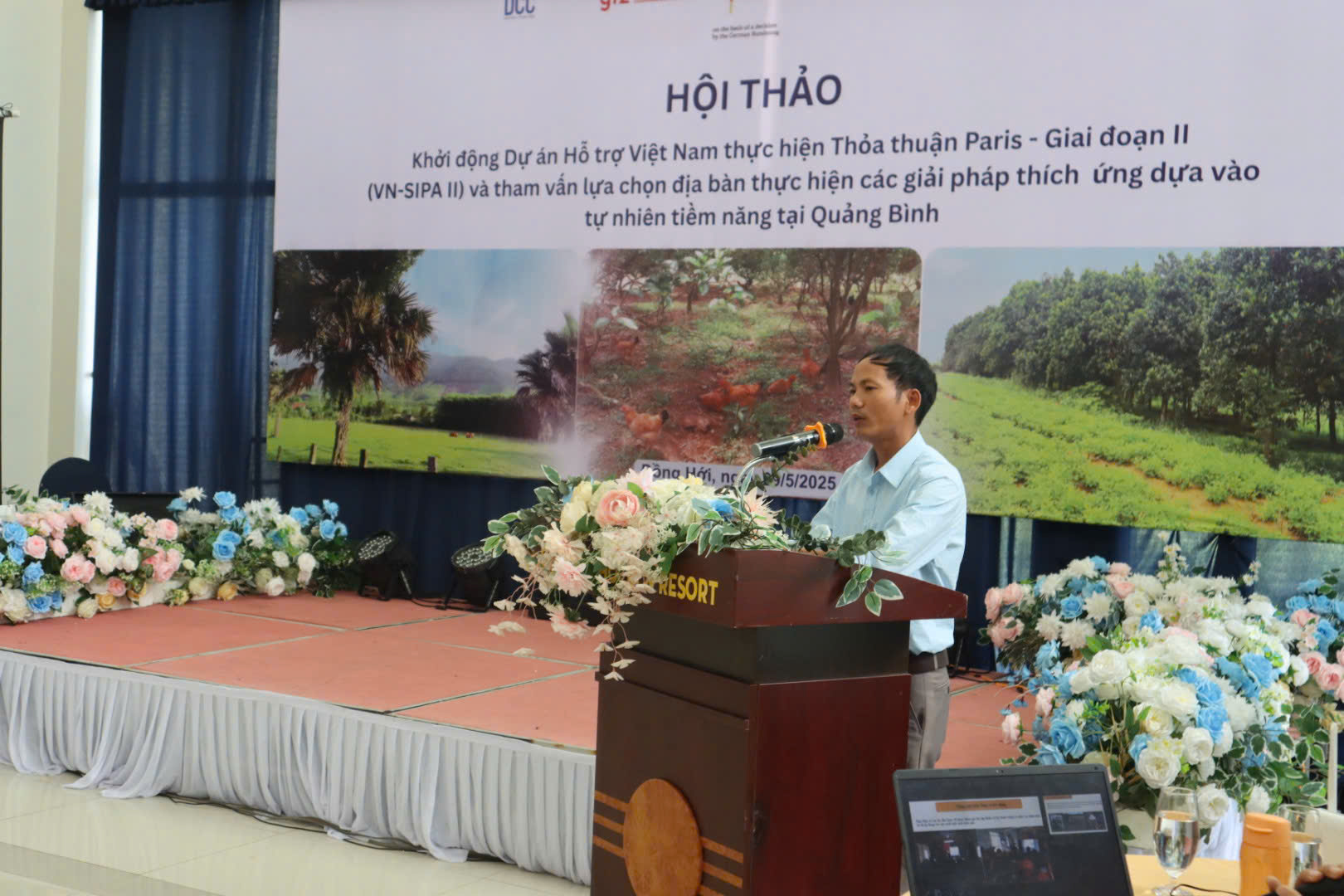
2025 Action Plan: Concrete and Feasible
In 2025, the sub-project will focus on implementing the following key activities:
- Reviewing documents and conducting baseline surveys;
- Developing a monitoring and evaluation (M&E) system;
- Implementing NbSA solutions in 12 priority communes;
- Raising community awareness and capacity;
- Developing climate-agriculture information services
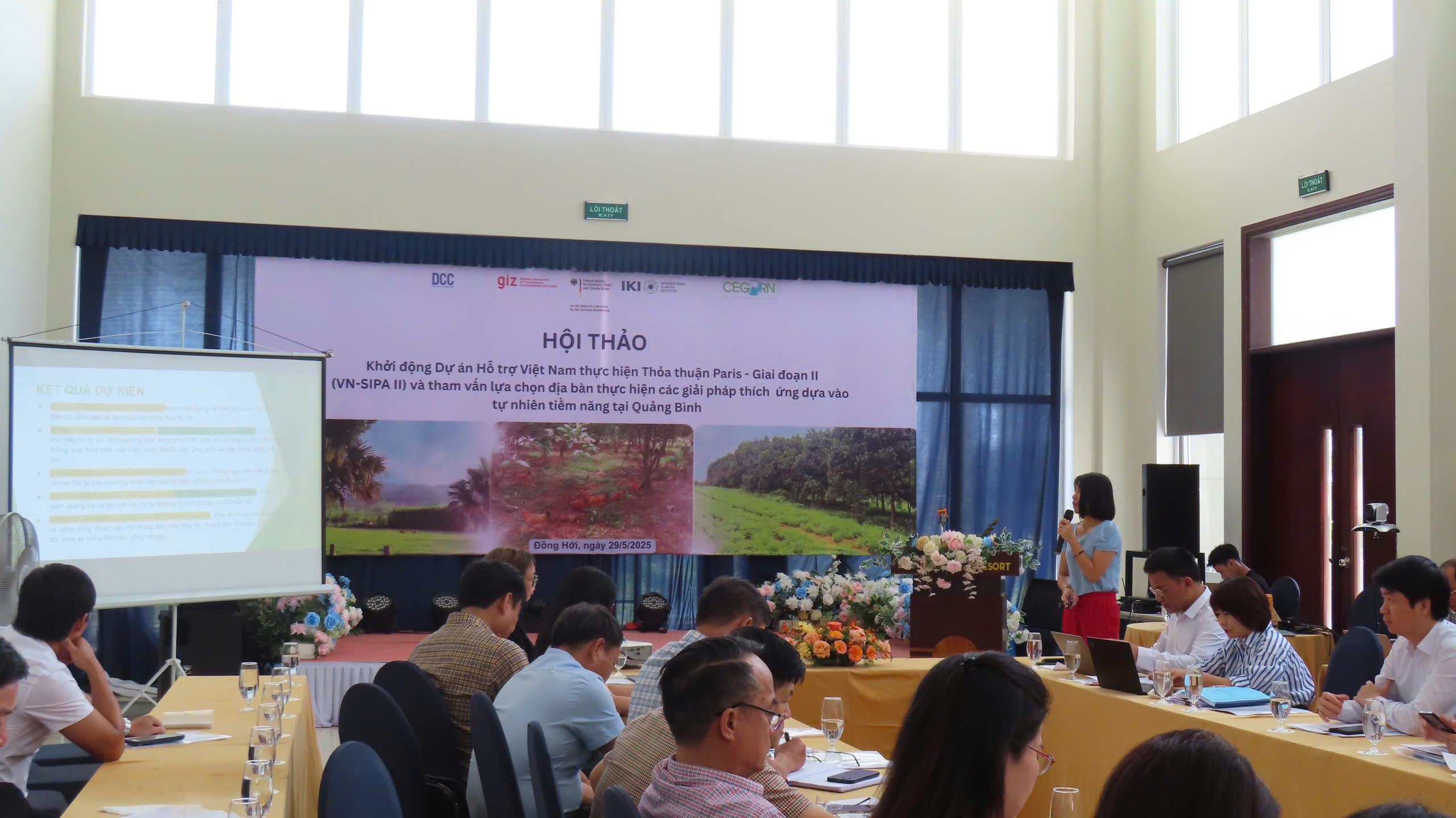
Multilateral Cooperation for Sustainable Development
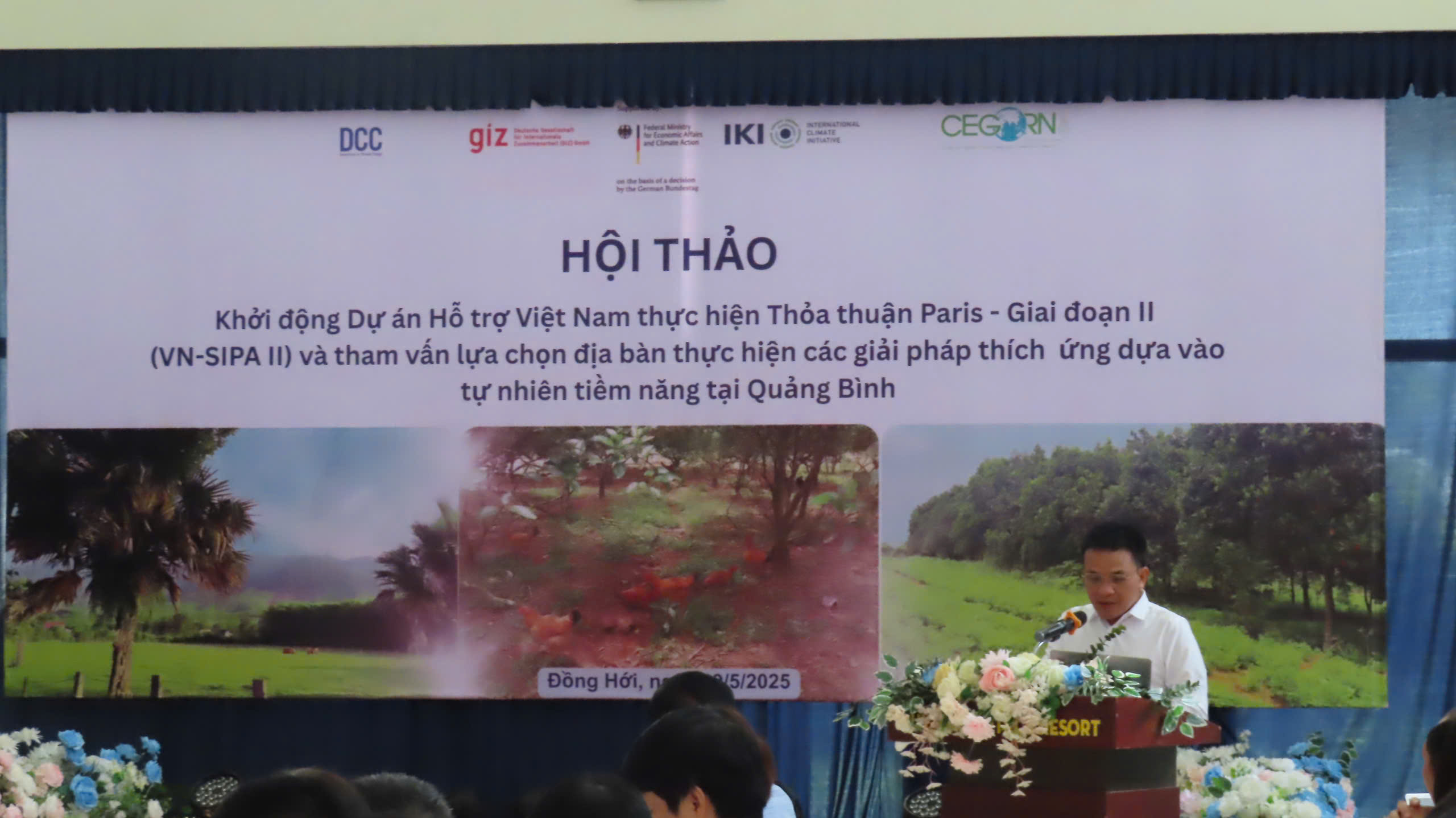
In his closing remarks, Mr. Ngo Van Hong – Director of CEGORN – emphasized:“For the project to succeed and generate lasting impact, close coordination among government levels, social organizations, and especially the proactive participation of local communities is essential. The application of nature-based adaptation (NbSA) and climate-smart agriculture (CSA) not only enhances people’s capacity to adapt to climate change but also contributes to ecosystem protection, sustainable livelihood development, and the promotion of gender equality within communities.”

